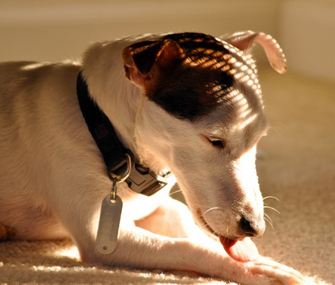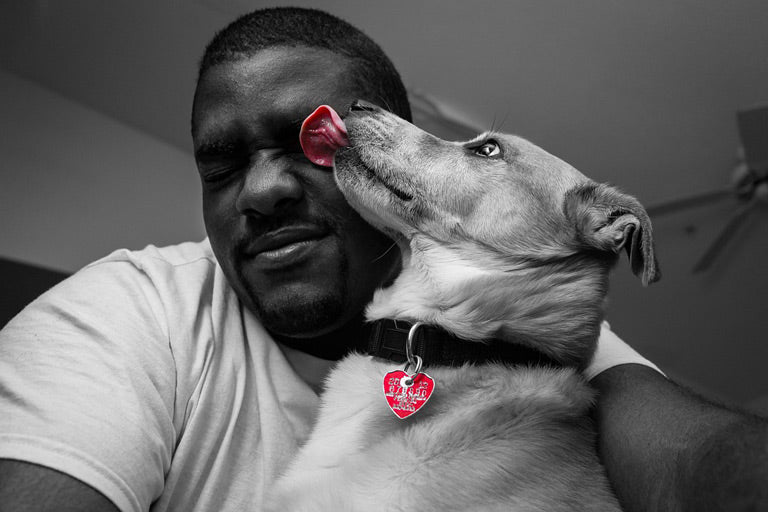
For wild or feral dogs licking is probably beneficial in cleaning a wound. They are natural healers when it comes to grooming and cleaning.

For dogs licking wounds is like you rubbing your head if you hit it.
Is it good for a dog to lick your wounds. For dogs licking wounds is like you rubbing your head if you hit it. The nerves used to transmit the rubbing sensation block the feeling of pain or soreness. And canine saliva does have some mild antibacterial effect.
For wild or feral dogs licking is probably beneficial in cleaning a wound. Why Dogs Lick Their Wounds It is not only do dogs have a natural instinct to immediately lick any wound inflicted on them. Humans too have a reflex to lick or suck on any cuts they suffer think about the first thing you do when you get a paper cut.
Best answers Some people have advocated humans allowing dogs to lick our wounds based on the presumption that the canine saliva possesses an antiseptic properties. It isnt a good idea to let your dog lick your wounds and it really isnt a good idea to let him lick his. When your dog licks a wound there are healing capacities in their saliva and it can also help cleanse the area.
They are natural healers when it comes to grooming and cleaning. It is a part of how they are wired. There is a belief that dog saliva can heal wounds.
Is it OK to let a dog lick your wounds. Not only does licking potentially introduce infection but the act of licking can break down tissues and suture. Many people still feel that as a natural response of a dog to a wound it is a good idea.
It isnt a good idea to let your dog lick your wounds and it really isnt a good idea to let. Although your dog means well when it tries to lick your wounds canine saliva can cause infections in humans. As dog bites carry risk of infection so does licking.
It is rare for dog saliva to cause serious injury but it has in more than one case. This is especially helpful when it comes to a wound that your dog is tempted to lick but should not be licking because it causes more harm than good. Pour 2 cups of apple cider vinegar into an empty spray bottle or you can substitute the vinegar with lemon juice Add 1 cup of white vinegar.
A good amount of licking can be helpful for small wounds. But remember discourage licking after surgery especially if there are stitches involved dogs are likely to bite and pull them out. A case of too much licking causing skin damage.
Licking wounds is an instinct that many mammals including dogs have. It is common for animals like cats primates and rodents to lick their injuries. Sometimes they can even lick the scrapes and cuts of other animal species.
This instinct reduces the risk of infection as it helps mammals keep their open wounds clean. It isnt a good idea to let your dog lick your wounds and it really isnt a good idea to let him lick his own. Despite the suggestion that there may be bactericidal benefits the trauma caused by the friction of licking is destructive to the healing process.
Your best bet on a wound is to consult a veterinarian for your dog or physician. There is also an element of your dog liking the taste of the fluid coming from the wound. It is an instinctive response in dogs humans and other animals to attend quickly to wounds and dogs are just one species that will lick at them to cleanse the area cats rodents and monkeys do the same.
At the very least the dogs licking cleanses the area. The more a dog licks the more dirt and loose skin will adhere to the saliva on its tongue and be removed from the open sore. Theres even some anecdotal evidence that a dog licking the wound makes it feel better.
Dogs will naturally lick any wound on their bodies they can reach with their tongues as its just instinct for them to do so. Because this is such common behavior many people believe that when a dog licks a wound it will promote healing. Your dog should not be allowed to lick or chew the open wound.
Many dogs will require a protective collar see handout Elizabethan Collars in Dogs for more information to prevent them from injuring the site. It is important to prevent the skin from healing over the wound too quickly.